NEW YORK (24 October 2018) – A UN expert on North Korea said there had not been any substantial improvement in human rights in the country even as détente takes hold on the peninsula, imploring the world to learn from past experience that it is essential to put human rights at the centre of any strategy to build a lasting peace.
In his latest report to the UN General Assembly, the Special Rapporteur on the situation of human rights in the Democratic People’s Republic of Korea (DPRK), Tomás Ojea Quintana, said interviews with persons who recently left the country indicate a grave situation of chronic food insecurity and serious difficulties in living conditions, as well as ongoing severe restrictions on basic freedoms.
While commending the efforts that have paved the way for the current rapproachement, as well as the determination of all governments in continuing the process of dialogue, he urged the international community to bring human rights to the negotiating table without further delay. “History has shown time and again that, if the human rights issues are not addressed, there can be no genuine or sustainable peace, security or development,” he said.
The UN expert stressed that the ongoing dialogue on peace and denuclearisation had provided a critical opportunity to lay the foundations of a human rights dialogue with the Government of the DPRK.
“The international community needs no reminder that it is now well aware of the findings of the 2014 United Nations Commission of Inquiry on human rights in the DPRK, which documented grave human rights violations in the DPRK, including crimes against humanity,” he said.
“To address human rights in DPRK is not only the responsibility of the parties involved in negotiations, but also a primary burden of the United Nations as a whole.”
In urging all stakeholders to develop a clear and explicit strategy to start improving the human rights situation in the DPRK, and calling on the DPRK authorities to open up to the human rights agenda, to end an era of isolation and to allow access to its territory, Mr Ojea Quintana stressed: “Ultimately, it is tangible results for the people of the DPRK that matter”.
Since his appointment by the UN Human Rights Council in March 2016, the Special Rapporteur has not been granted access to the DPRK, despite repeated requests.
ENDS
Mr. Tomás OJEA QUINTANA (Argentina) was designated as the Special Rapporteur on the situation of human rights in the DPRK by the UN Human Rights Council in 2016. Mr. Ojea Quintana, a lawyer with more than 20 years of experience in human rights, worked for the Inter-American Commission of Human Rights, and represented the Argentinian NGO ‘Abuelas de Plaza de Mayo’ in cases concerning child abduction during the military regime. He is a former Head of OHCHR human rights programme in Bolivia, and served as the UN Special Rapporteur on the situation of human rights in Myanmar from 2008 to 2014. Learn more.
The Special Rapporteurs are part of what is known as the Special Procedures of the Human Rights Council. Special Procedures, the largest body of independent experts in the UN Human Rights system, is the general name of the Council’s independent fact-finding and monitoring mechanisms that address either specific country situations or thematic issues in all parts of the world. Special Procedures’ experts work on a voluntary basis; they are not UN staff and do not receive a salary for their work. They are independent from any government or organization and serve in their individual capacity.
UN Human Rights, country page – DPRK
For additional information and media requests, please contact: Olga Nakajo (+41 22 928 9348 in Geneva/onakajo@ohchr.org)
For media inquiries related to other UN independent experts: Jeremy Laurence – Media Unit (+ 41 22 917 9383 /jlaurence@ohchr.org)
This year is the70th anniversaryof the Universal Declaration of Human Rights, adopted by the UN on 10 December 1948. The Universal Declaration – translated into a world record 500 languages – is rooted in the principle that “all human beings are born free and equal in dignity and rights.” It remains relevant to everyone, every day. In honour of the 70th anniversary of this extraordinarily influential document, and to prevent its vital principles from being eroded, we are urging people everywhere toStand Upfor Human Rights:www.standup4humanrights.org
